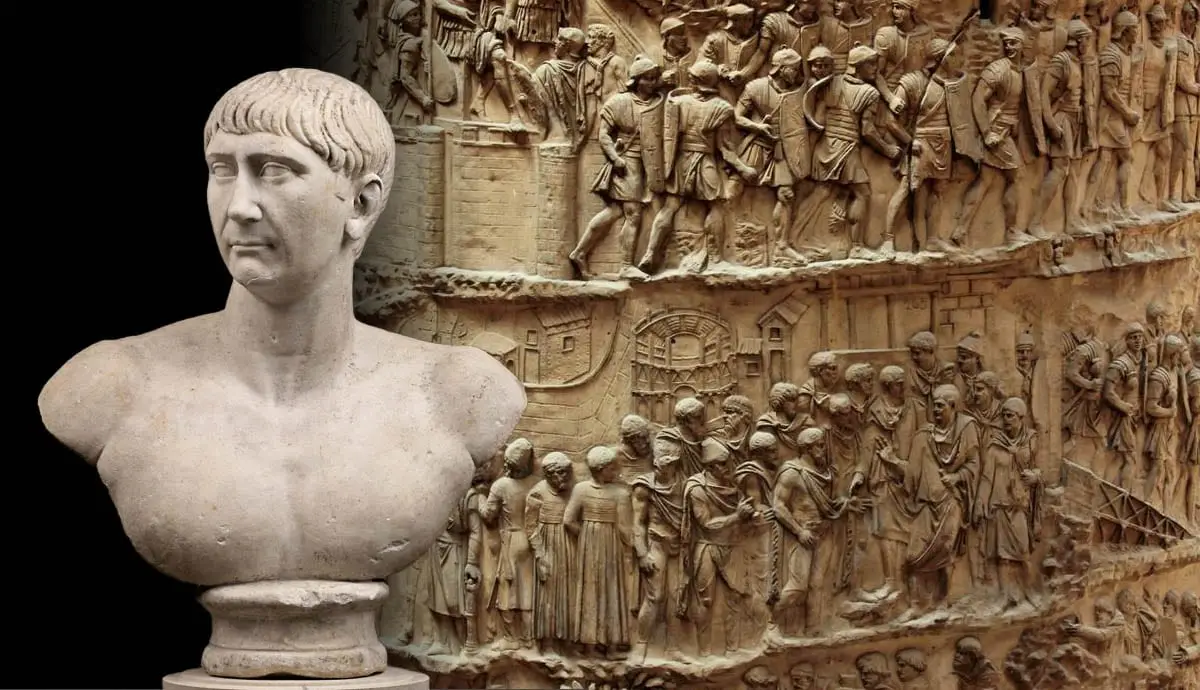Trajan, one of Rome's most illustrious emperors, rose to power through a combination of military prowess, political acumen, and strategic alliances. Trajan was born in 53 AD in the Roman province of Hispania, Trajan's early years were marked by a distinguished military career and a reputation for leadership on the battlefield. His ascent to the imperial throne represents a pivotal moment in Roman history, ushering in a period of unprecedented expansion and prosperity.
Trajan's path to power began with his military service under Emperor Domitian, during which he distinguished himself as a capable and resourceful commander. His strategic victories in the Germanic campaigns earned him the favor of the emperor and elevated his status within the Roman hierarchy. However, it was not until the death of Domitian in 96 AD that Trajan's ambitions would be realized.
Following Domitian's assassination, Trajan's ascent to the imperial throne was swift and decisive. With the support of the Senate and the backing of the Praetorian Guard, Trajan was proclaimed emperor in 98 AD, marking the beginning of his transformative reign. His rule, which lasted until 117 AD, is widely regarded as a period of prosperity and stability for the Roman Empire.
Trajan facts abound, highlighting his many accomplishments as emperor. Under his leadership, Rome experienced a period of unprecedented expansion, as Trajan embarked on ambitious military campaigns to conquer new territories and expand the empire's borders. His conquests in Dacia, Arabia, and Mesopotamia brought vast wealth and resources to Rome, cementing Trajan's reputation as one of the empire's greatest conquerors.
But Trajan's legacy extends far beyond his military conquests. He was also known for his administrative reforms, which streamlined government bureaucracy and improved the efficiency of the imperial administration. Trajan's public works projects, including the construction of roads, bridges, and aqueducts, transformed Rome into a bustling metropolis and laid the foundation for its continued growth and prosperity.
Trajan's rule was also marked by a commitment to public welfare and civic amenities. He sponsored numerous building projects, including the famous Trajan's Forum and Trajan's Column, which served as symbols of his power and prestige. Additionally, Trajan implemented social welfare programs to provide assistance to the poor and disadvantaged, earning him the admiration and gratitude of his subjects.
Trajan's journey from birth to emperorship is a testament to the power of ambition, leadership, and strategic vision. His rise to power and subsequent reign as emperor represent a pivotal moment in Roman history, shaping the destiny of the empire for generations to come. Through his military conquests, administrative reforms, and commitment to public welfare, Trajan left an indelible mark on the Roman Empire, earning him a place among the greatest rulers of antiquity.




